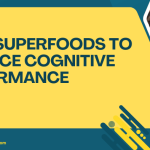Table of Contents
- Introduction
- Why Hydration Matters for Brain Function
- Tip 1: Drink Water Regularly
- Tip 2: Eat Hydrating Foods
- Tip 3: Monitor Your Urine Color
- Tip 4: Limit Dehydrating Beverages
- Tip 5: Set Reminders
- Conclusion
- FAQs
Introduction
Did you know that staying hydrated is crucial for maintaining optimal brain function? Water is essential for many bodily functions, including cognitive performance. In our fast-paced lives, we often overlook the importance of hydration, leading to fatigue, poor concentration, and even memory issues. In this article, we’ll explore the top five hydration tips to boost your brain function and keep your mind sharp.
“Hydration is not just about thirst; it’s about maintaining a balance that supports every cell in your body.”
Why Hydration Matters for Brain Function
Water makes up about 75% of the brain, and even mild dehydration can significantly affect cognitive functions. Studies show that a drop in hydration levels can lead to difficulties in focus, increased fatigue, and even mood swings. Proper hydration helps maintain blood circulation, nutrient delivery, and waste removal, all of which are vital for brain health.
For a deeper understanding of the science behind hydration and brain function, check out this Harvard Health article.
Additionally, hydration plays a critical role in neuro care, as highlighted in our article on Top 5 Essential Insights on Neuro Care You Need to Know.
Tip 1: Drink Water Regularly
One of the simplest yet most effective ways to stay hydrated is to drink water throughout the day.
Daily Water Intake Recommendations:
| Age Group | Daily Water Intake (Liters) |
|---|---|
| Children (4-8) | 1.2 |
| Adolescents (9-13) | 1.6 |
| Adults (Men) | 3.7 |
| Adults (Women) | 2.7 |
How to Implement:
- Carry a Water Bottle: Keep a reusable water bottle with you to encourage regular sipping.
- Set Goals: Aim for a certain number of bottles or glasses per day.
- Drink Before Meals: Make it a habit to drink a glass of water before every meal.
“Consistency is key. Just like exercise, regular water intake has a cumulative effect on your cognitive abilities.”
By consistently drinking water, you’ll help maintain hydration levels necessary for optimal cognitive function.
Tip 2: Eat Hydrating Foods
Did you know that many fruits and vegetables have high water content? Incorporating these hydrating foods into your diet can provide an additional source of hydration.
Examples of Hydrating Foods:
- Cucumbers: 95% water
- Lettuce: 95% water
- Celery: 95% water
- Watermelon: 92% water
- Strawberries: 91% water
How to Implement:
- Salads and Smoothies: Add more hydrating fruits and vegetables to your meals.
- Snacking: Choose hydrating snacks like watermelon or cucumber slices instead of chips.
“Think of hydrating foods as nature’s water bottles, packed with nutrients that also benefit your brain!”
Eating these hydrating foods not only contributes to your overall fluid intake but also provides essential nutrients that support brain health, as discussed in our article on Top 5 Lifestyle Changes for Better Neuro Health.
Tip 3: Monitor Your Urine Color
Your urine color is a quick and effective way to gauge your hydration levels.
Hydration Color Chart:
- Clear: Well-hydrated
- Pale Yellow: Good hydration
- Dark Yellow: Mildly dehydrated
- Amber: Dehydrated
- Brown: Severe dehydration; seek medical attention
How to Implement:
- Check Regularly: Make it a habit to glance at your urine color when you use the restroom.
- Adjust Intake: If your urine is darker than pale yellow, increase your water intake.
“Your body communicates with you. Pay attention to the signals it sends, especially when it comes to hydration.”
Keeping an eye on your urine color can help you stay on track with your hydration goals and is particularly relevant when considering overall health, as discussed in our article on Top 5 Benefits of Regular Neuro Check-Ups for Your Health.
Tip 4: Limit Dehydrating Beverages
Certain beverages can contribute to dehydration, including those high in caffeine and sugar.
Beverages to Limit:
- Coffee and Tea: While moderate amounts are fine, excessive caffeine can lead to increased urination.
- Sugary Drinks: Sodas and energy drinks can lead to dehydration due to their high sugar content.
- Alcohol: Alcohol is a diuretic that can quickly deplete your body of water.
How to Implement:
- Substitute: Try drinking herbal teas or flavored water instead of soda or high-caffeine drinks.
- Alternate: When consuming alcohol, alternate with water to stay hydrated.
“Choices matter! Opting for hydrating alternatives can make a significant difference in your daily fluid intake.”
By limiting these dehydrating beverages, you can promote better hydration and support brain function, aligning with our insights on Top 5 Essential Tools in Neuro Care You Should Know.
Tip 5: Set Reminders
In our busy lives, it’s easy to forget to drink water. Setting reminders can help you stay consistent.
How to Implement:
- Use Apps: Download hydration reminder apps that alert you to drink water.
- Calendar Alerts: Set recurring reminders on your phone or calendar.
- Visual Cues: Place sticky notes in visible areas to remind you to drink water.
“Just like brushing your teeth, drinking water should be a non-negotiable part of your daily routine.”
Establishing a routine with reminders can significantly increase your water intake and, ultimately, your cognitive performance, which is vital for neuro care, as discussed in Top 5 Ways Caregivers Enhance Neuro Care Effectiveness.
Conclusion
Staying hydrated is a simple yet powerful way to enhance your brain function. By incorporating these five hydration tips into your daily routine, you can improve your focus, memory, and overall cognitive health. Remember, hydration is key to a sharp mind!
“Hydration is not just a basic need; it is a foundation for cognitive excellence.”
FAQs
Q: How much water should I drink daily?
A: The general recommendation is about 3.7 liters for men and 2.7 liters for women, but individual needs can vary based on activity levels and climate.
Q: Can I drink other beverages instead of water?
A: While other beverages can contribute to hydration, water is the best choice. Be mindful of drinks high in caffeine and sugar, as they can dehydrate you.
Q: What are the signs of dehydration?
A: Common signs include thirst, dry mouth, fatigue, dark yellow urine, and dizziness.
Q: Can hydration affect my mood?
A: Yes! Dehydration can lead to mood swings, irritability, and increased stress levels.
For more information on hydration and brain health, visit the National Institutes of Health.
By following these tips, you can ensure that you’re not just quenching your thirst but also nourishing your brain. Cheers to better hydration and sharper thinking!






